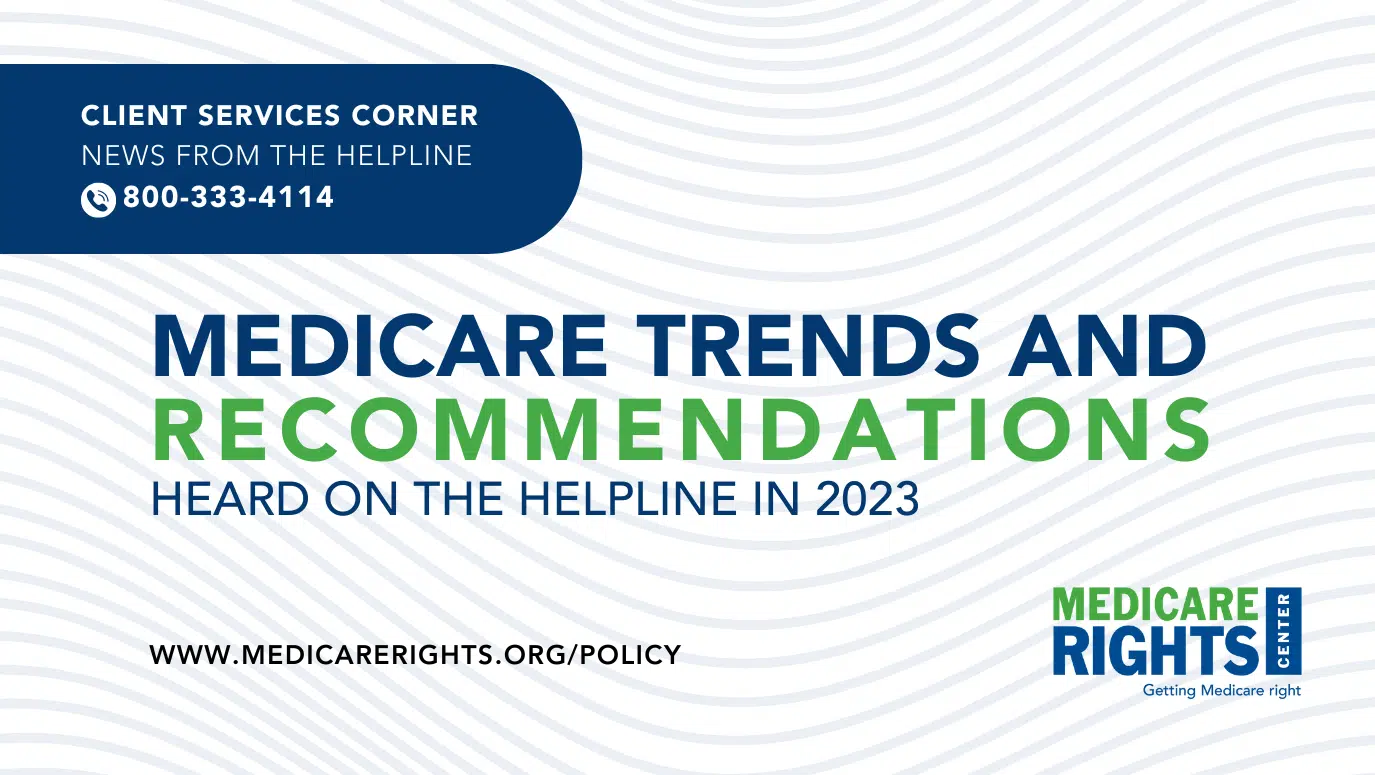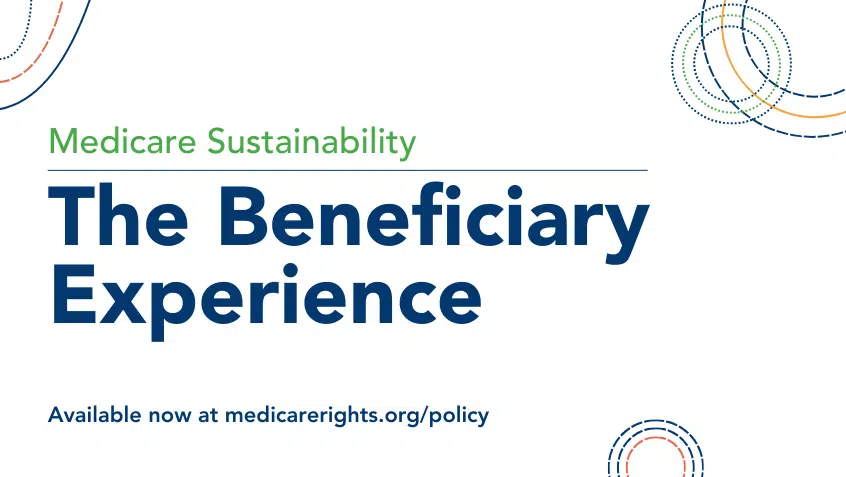Join Us Live for a Discussion on Medicare, Democracy, and the Future of Health Care
Medicare Rights Helpline Trends Report Highlights Beneficiary Challenges and Opportunities for Reform

This week, the Medicare Rights Center released our annual helpline trends report, Medicare Trends and Recommendations: An Analysis of 2023 Call Data from the Medicare Rights Center’s National Helpline. Drawn from our direct experience with beneficiaries and their caregivers, the report outlines key challenges facing people with Medicare and recommends ways to improve the program.
Drawn from our direct experience with beneficiaries and their caregivers, the report outlines key challenges facing people with Medicare and recommends ways to improve the program.
In 2023, Medicare Rights staff and volunteers addressed more than 27,000 questions through our National Consumer Helpline, while Medicare Interactive (MI), our free and independent online reference tool, fielded more than 3.6 million user questions.
Key Trends
Affordability Concerns
Over 41% of callers sought help with Medicare costs, including premiums, cost-sharing, and prescription drugs. This represents approximately a 14% increase in calls related to affordability compared to the prior year, due in part to New York state expanding the income limits for Medicare Savings Programs and Medicaid. Of New Yorkers calling about low-income benefits, approximately 33% were newly eligible for assistance.
Impacts of the Inflation Reduction Act
Notably, 2023 was the first year that key Inflation Reduction Act changes took effect. Starting in January of 2023—only months after the law’s passage—recommended Part D vaccines were available without cost sharing and enrollees who take insulin benefitted from a $35 cap on monthly copays for covered medications. Other important shifts, like the Part D restructure and $2,000 out-of-pocket cap are expected to further lower beneficiary costs. However, these policies are not captured in the current report, given their respective implementation dates of 2024 and 2025.
Enrollment Challenges
Nearly 25% of calls focused on navigating Medicare enrollment periods and understanding policy updates. This is a comparable number to prior years. Frequent questions included how to enroll in Medicare when eligible at age 65, how to utilize the Part B Special Enrollment Period, and how to use the General Enrollment Period. Callers had often made mistakes, resulting in coverage gaps and late enrollment penalties. But many of these errors were less harmful than in previous years: 2023 marked the first year under the BENES Act, where individuals received coverage starting the month after enrolling, eliminating the previous months-long waiting period.
Callers had often made mistakes, resulting in coverage gaps and late enrollment penalties. But many of these errors were less harmful than in previous years.
Barriers to Care
In 2023, 27% of callers were having issues with access to care, including around using their coverage, Medicare billing, and denials. Of these questions, the majority were related to Medicare Advantage (MA) (31%), followed by Part B (26%), Part D (16%), and Part A (12%). Many callers were struggling to navigate Medicare’s complex appeals processes, including with having to file multiple appeals to obtain necessary medical services.
Policy Recommendations
Implement the BENES 2.0 Act
To improve Medicare enrollment, Medicare Rights strongly supports the BENES 2.0 Act (S. 1687). This commonsense, bipartisan bill would require the federal government to notify people approaching Medicare eligibility about basic enrollment rules, which would help prevent costly enrollment errors. In addition, we call for better remedies to such mistakes, including through increased use of equitable relief and limits to the amount and/or duration of the financial penalty. To improve the enrollment decision-making process, we support standardizing and limiting MA plans as well as strengthening consumer tools and information to more accurately depict coverage trade-offs and the role of Medigap.
Make Medicare More Affordable
To address affordability, we support easing access to Medicare’s low-income assistance programs by improving education and outreach, eliminating asset tests, easing income eligibility thresholds, modernizing burdensome application processes, and better integrating plans and services for low-income enrollees. We also support establishing an affordable out-of-pocket cap across the program while addressing the underlying drivers of high and rising health care and prescription drug costs, such as gaps in Medicare coverage.
Improve Access to Care
Similarly, access to care should be further strengthened on the back end—by reducing improper denials, improving plan communications with consumers, streamlining the appeals processes, and enhancing plan data collection and oversight.
Together, these changes would begin to bolster Medicare coverage and modernize the program for current and future generations.
Read the report, Medicare Trends and Recommendations: An Analysis of 2023 Call Data from the Medicare Rights Center’s National Helpline.
Show Comments
We welcome thoughtful, respectful discussion on our website. To maintain a safe and constructive environment, comments that include profanity or violent, threatening language will be hidden. We may ban commentors who repeatedly cross these guidelines.
Help Us Protect & Strengthen Medicare.
Donate today and make a lasting impact.
The Latest
Most Read
Add Medicare to Your Inbox
Sign up to receive Medicare news, policy developments, and other useful updates from the Medicare Rights.
View this profile on InstagramMedicare Rights Center (@medicarerights) • Instagram photos and videos









